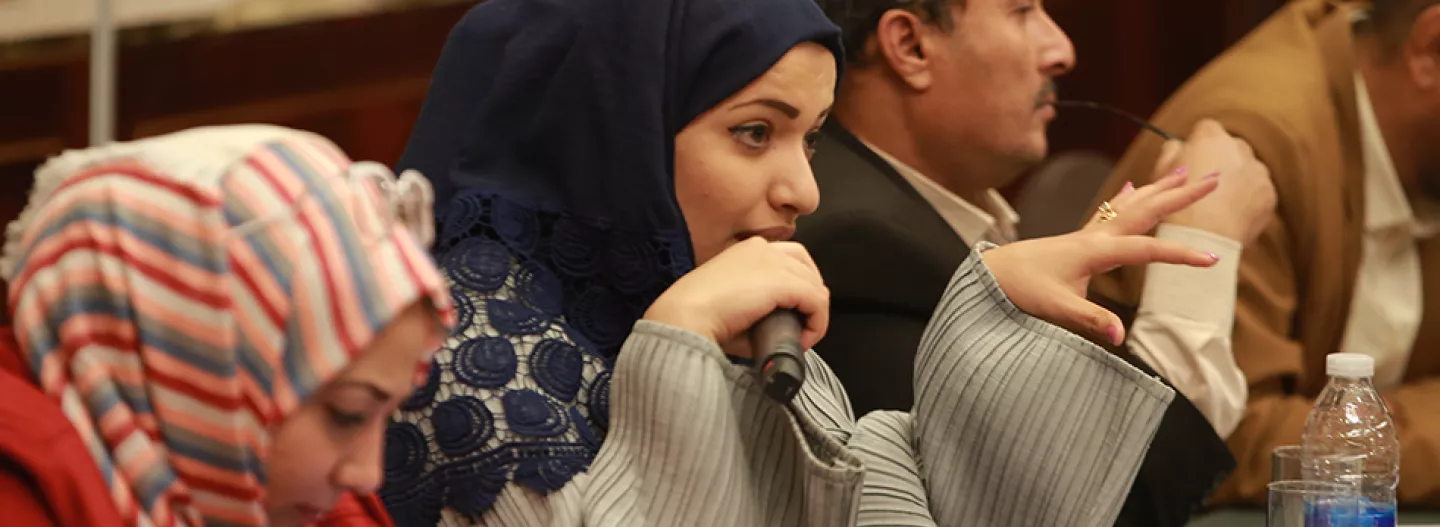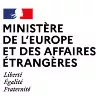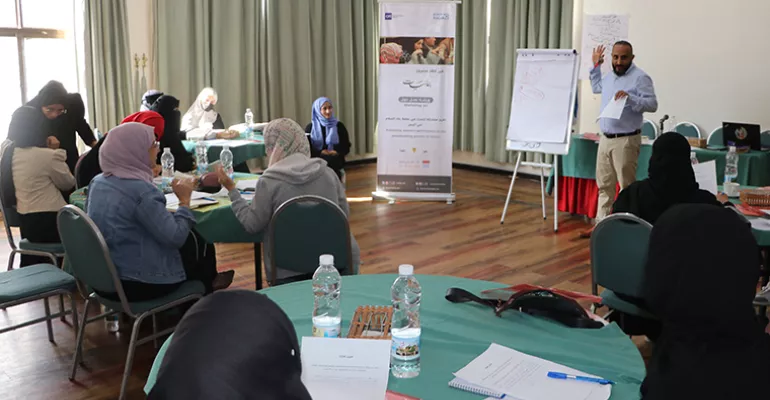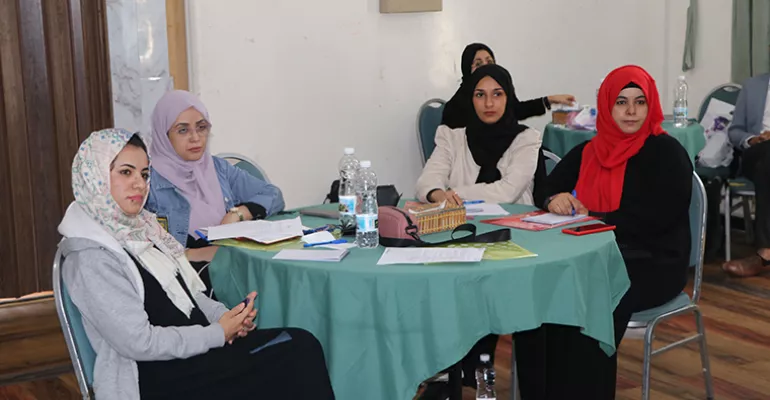Yamaniyat

Presentation
The Yemeni civil war between Houthi rebels and the government that has been ongoing for more than eight years has worsened the situation for women in the country. Around seven million of them have fallen victim to gender-based violence and more than one million pregnant and breastfeeding women are severely malnourished.
In addition, in spite of being actively involved in advocacy campaigns, women are excluded from international peace talks. Their roles as experts and decision-makers go unnoticed.
The media has the power to promote the participation of women in the public debate, to support respect for their rights and to tackle gender stereotypes. The Yamaniyat (Arabic for "Yemeni women") project uses the media to encourage the active participation of women in the peace process. It also promotes the production, by independent Yemeni media outlets, of content on the role that women play in resolving the conflict.
It is conducted in partnership with the Studies and Economic Media Center (SEMC), a Yemeni civil society organisation that has been working to develop media organisations in the country for more than 15 years.
Project beneficiaries
- 10 local independent media outlets;
- 6 female-led civil society organisations;
- 75 female Yemeni journalists.
Files to download
Actions
To promote the active participation of women in the resolution of the conflict of Yemen in the media
• To encourage the active participation of female Yemeni journalists in peace talks: collaboration with the media, civil society organisations and influencers to provide coverage of the Yemen International Forum held in June 2023 and organisation of webinars during the launch and resolution of the project.
Yemeni journalists visit the European Commission
Advocacy workshop held in Yemen to strengthen women’s voices
Yemen: advocating for a greater role for women in the peace process
To encourage the production and dissemination of quality content, by independent Yemeni media outlets, covering the participation of women in the peace process
• To provide training on conflict and peace-sensitive journalism for representatives from 10 selected independent media establishments;
• To provide training to 75 journalists (80% of whom are women) on social cohesion and minority rights;
• To provide support for the production of content reflecting the participation of women in the peace process;
• To publish and disseminate content, taking account of feedback received from the audience on social networks.



